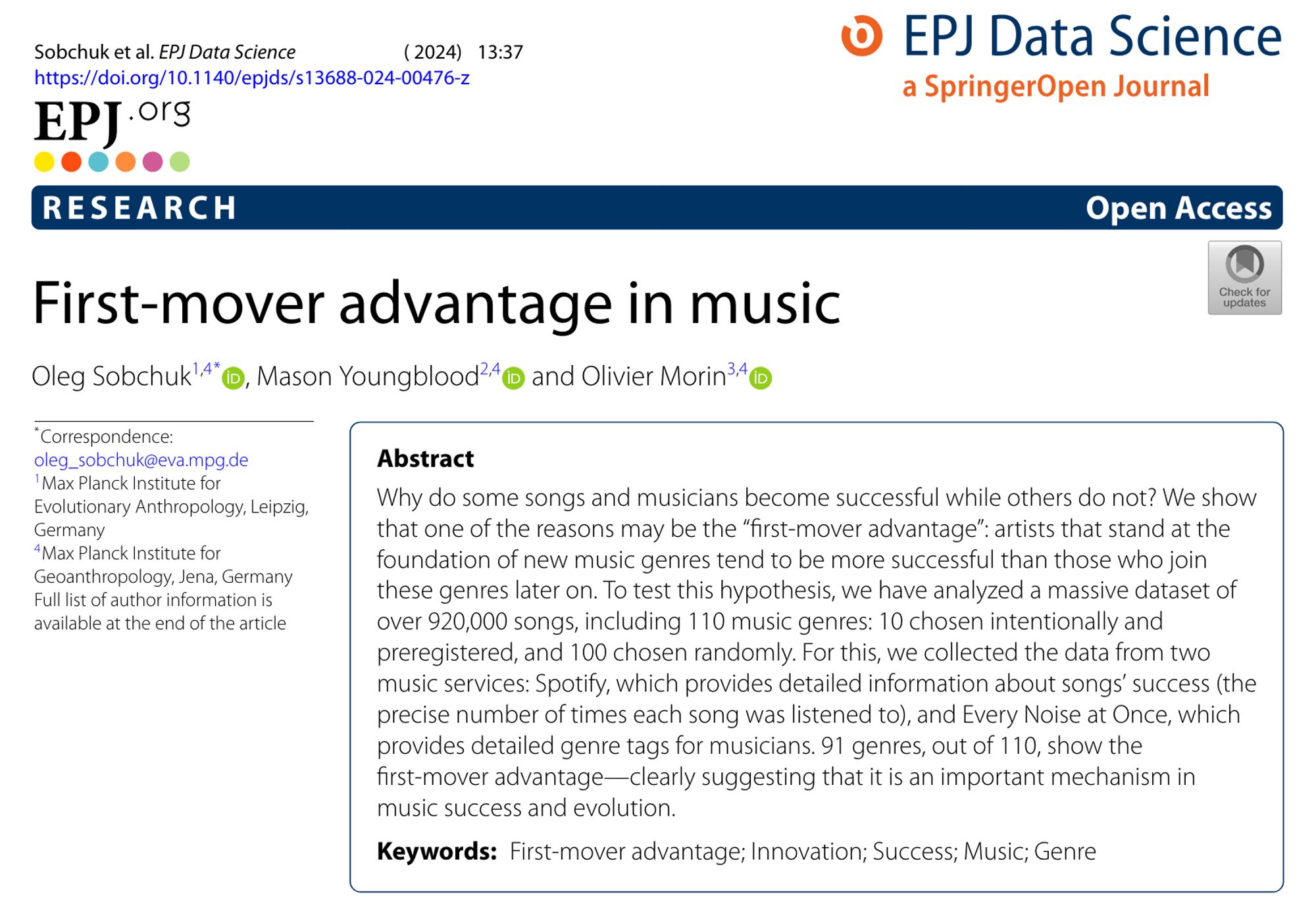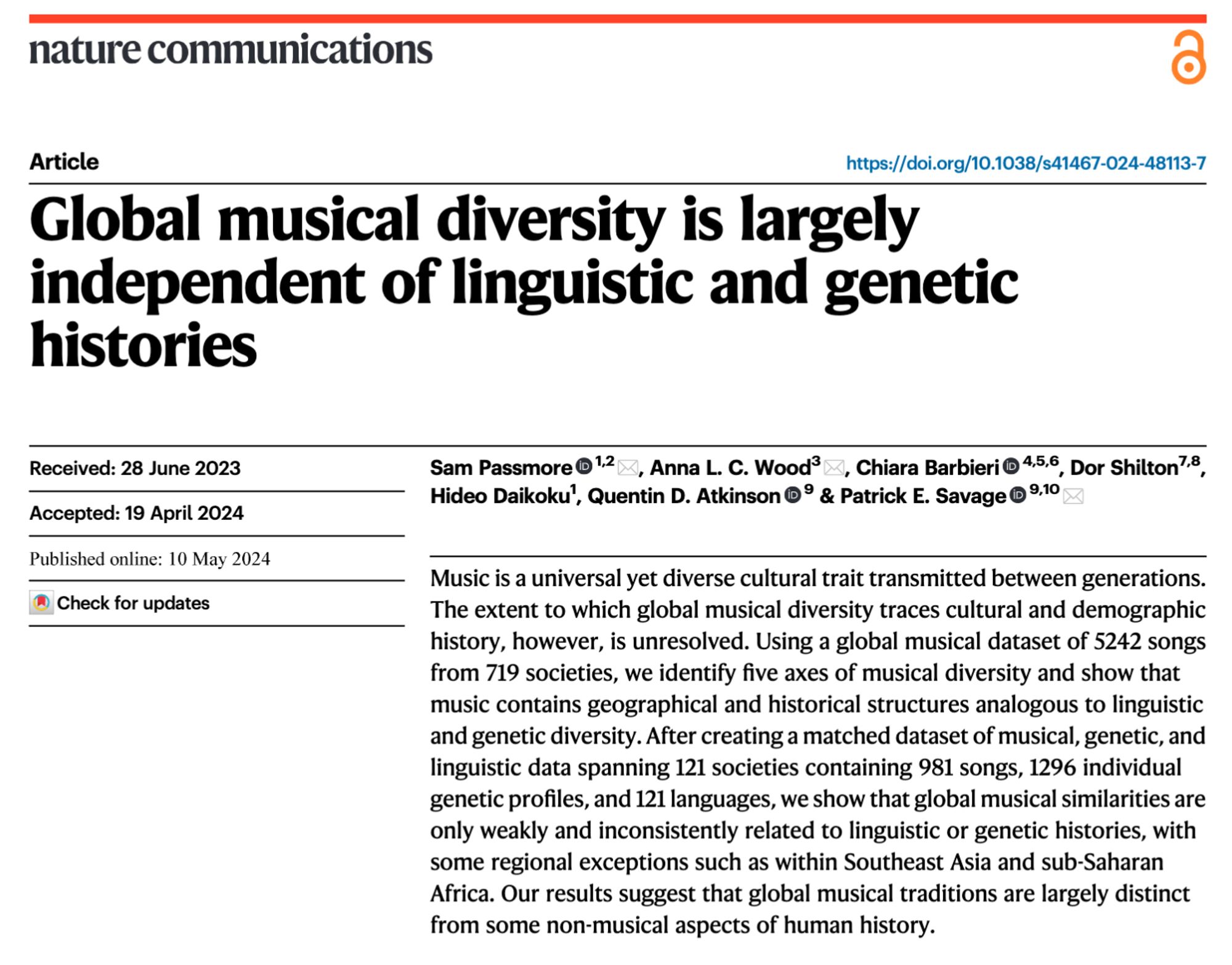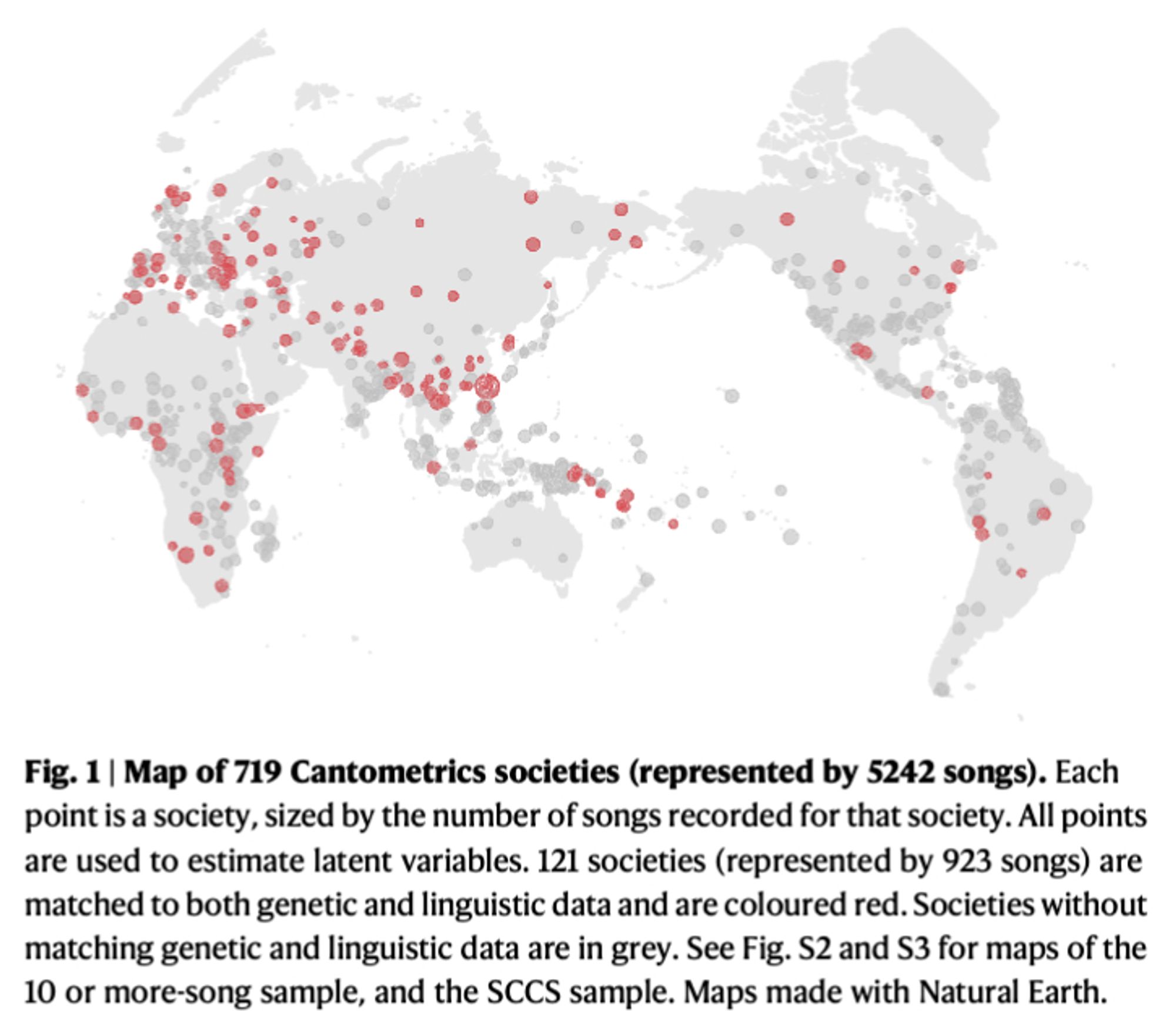
I've been doing all of what you recommend for a while, and honestly - I'm finding it more challenging, not easier, with growing older. It was (much) easier to find peers to hang out with as a PhD student or postdoc than as a tenure-track faculty, and couple/family life wasn't the norm yet.
For folks who have had to navigate early career stages with an unstable personal/romantic life/heartbreak(s), especially if they are far geographically from most of their support system, do you have any advice on how to do it? Does it ever get easier?
So cool to meet all these fantastic scholars in person for the first time after interacting (collaborating, reviewing, debating, etc) only virtually for many years @masonyoungblood.bsky.social@babeheim.bsky.social@helenamiton.bsky.social
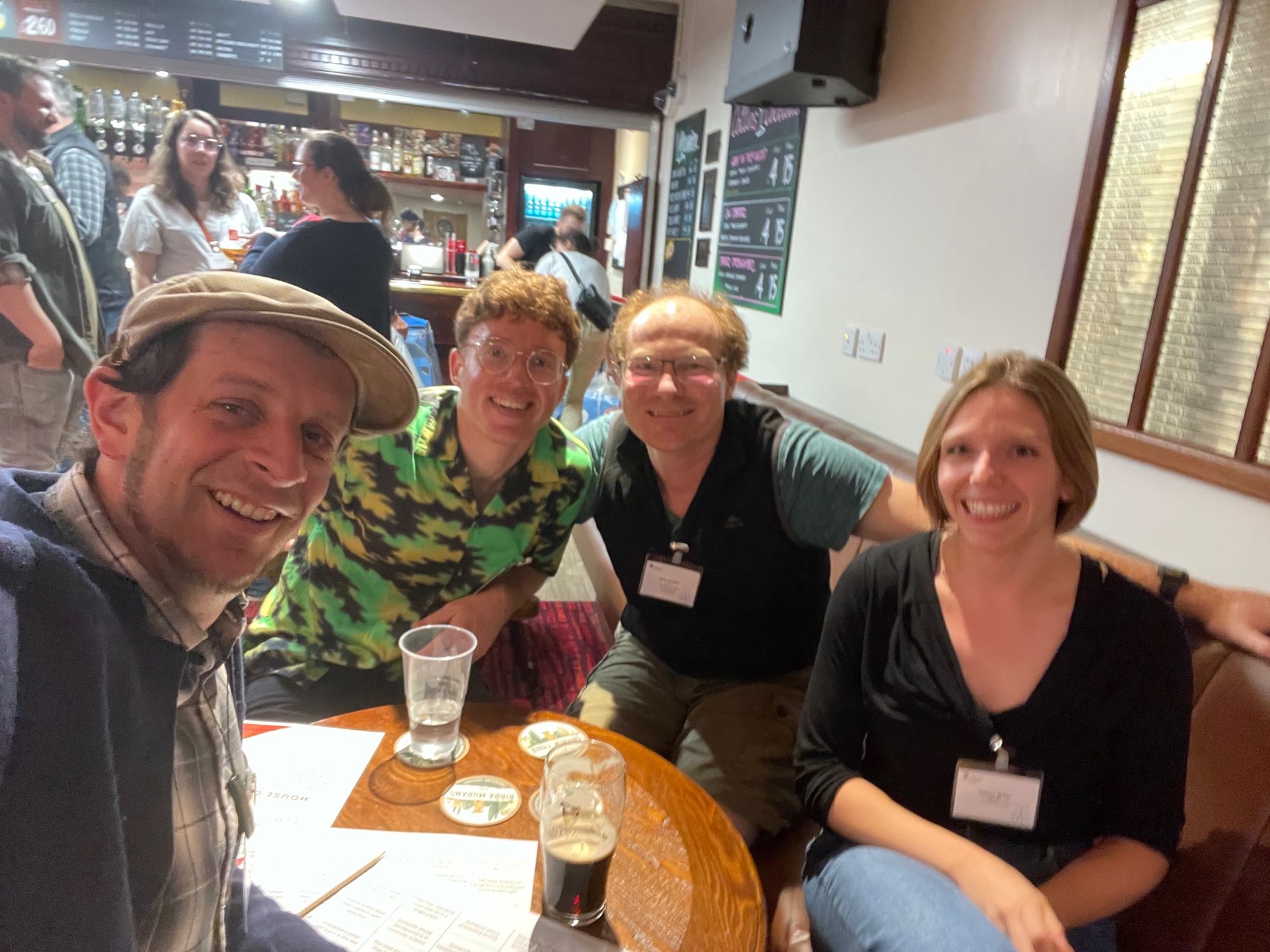
Information Architectures: A Framework for Understanding Socio-Technical Systems New paper that came out of a workshop I co-organized at @sfiscience.bsky.socialosf.io/preprints/so...
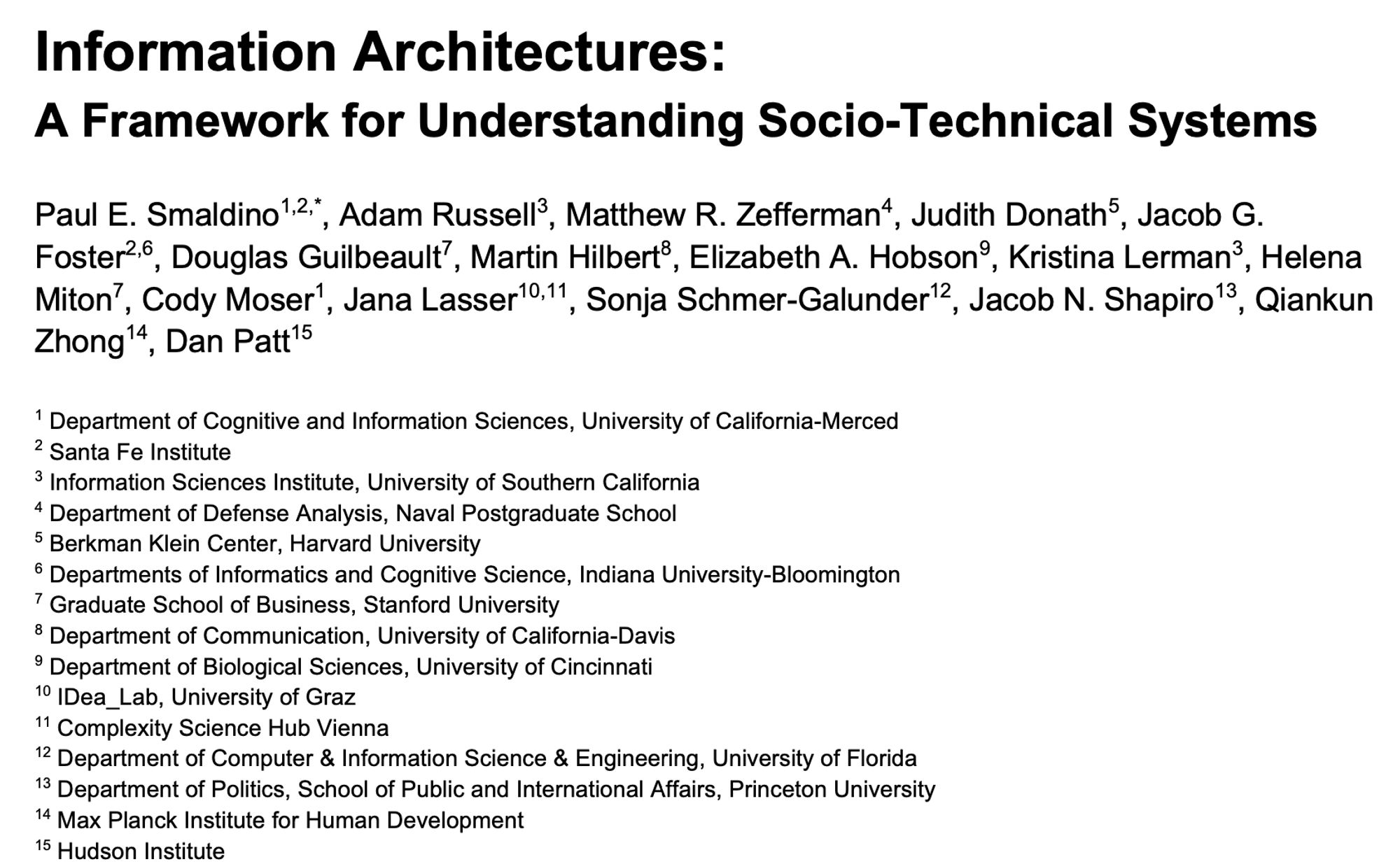
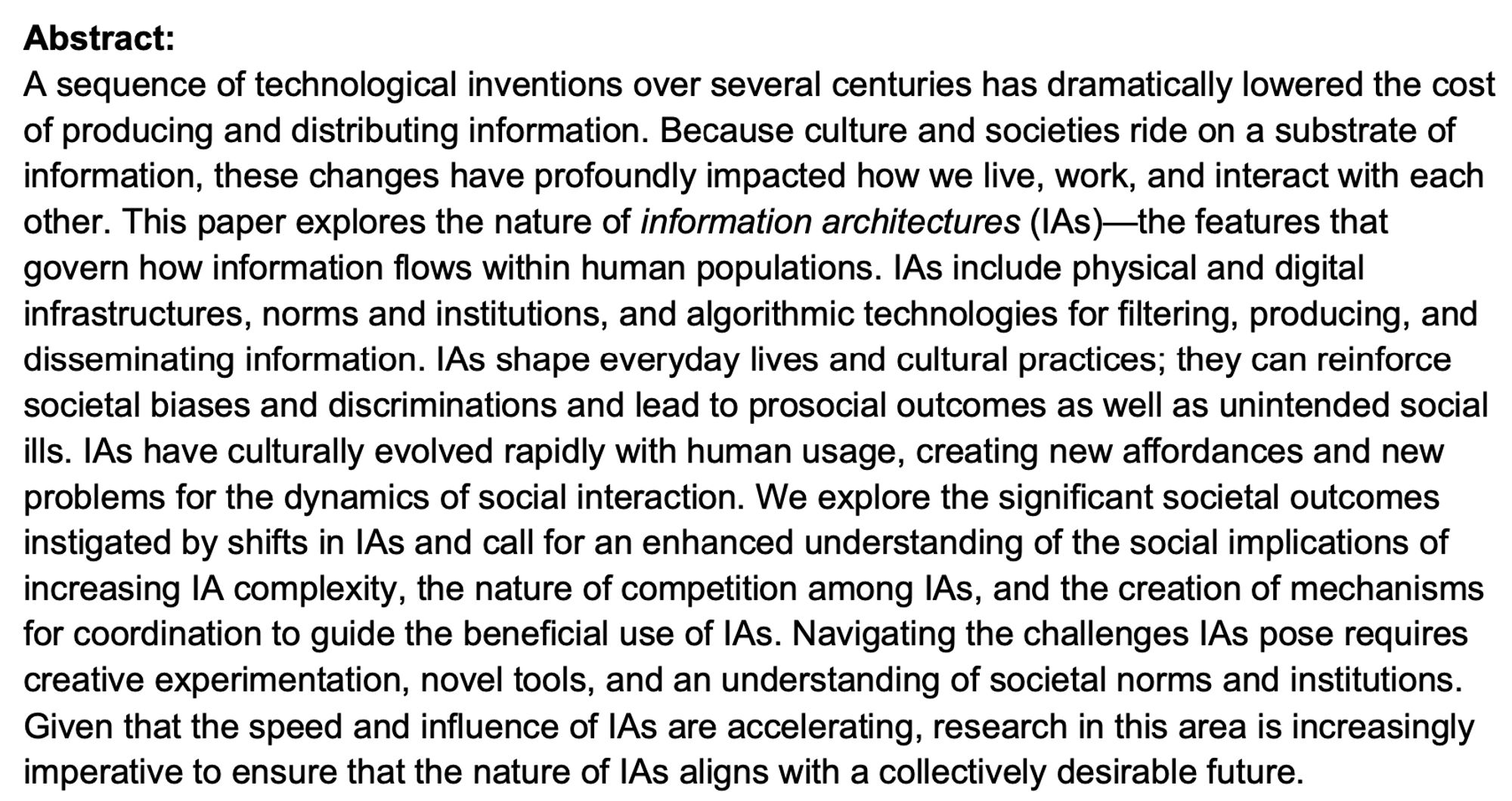
We're hiring 2 data scientists to work w/faculty and students in our new Social Science Data and Computing Lab. Master’s preferred, but BA/BS + strong evidence of relevant skills also encouraged to apply. Pay begins at $83K. Apply / share with your students! searchjobs.dartmouth.edu/postings/738...

Reporting to the chairs of the Departments of Economics, Government and Quantitative Social Sciences, the Data Scientist working in the Social Science Data and Computation Lab at Dartmouth College ser...
Looking for a PhD student interested in finding out what makes human cognition special, studying symbolic thought, compositionality, behaviour & 🧠, co-supervised by Paul Muhle-Karbe, Sarah Beck, School of Psychology, Uni of Birmingham Lab meetings in 🌳👇 reach out by 24/5 more in 🧵 Please share 1/n

Come do a PhD in Trento! www.unitn.it/en/ateneo/58...

Ateneo | Announcement of selection in Sociology and Social Research | Announcement of selection 40th cycle - a.y. 2024/2025 The University of Trento announces a public selection procedure for
Reminder of this postdoc, deadline next Monday (15th April)

